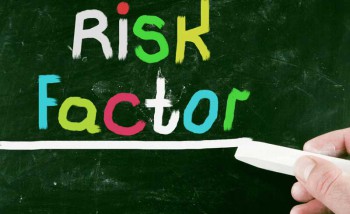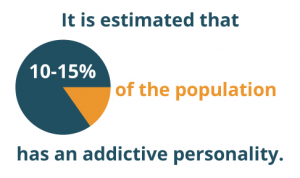Drug Addiction Risk Factors

There are certain risk factors that can make a person more prone to drug addiction. However, all the risk factors are not the same for everyone. We will take a look at some of the risk factors to look for to help you avoid drug addiction, or help others that you are concerned may be prone to drug addiction. First, we will take a look at general activity and behavior than can put one at greater risk of becoming addicted to drugs or alcohol. Then, we will look into addictive personalities and how they can affect a persons risk factors for addiction.
Obviously the only sure fire way to not get addicted to drugs or alcohol is to never use either. However, often teens, or even children, are making the choice to use these substances before they are old enough to even understand addiction or the long-term affects it could have on their life. Starting these behaviors early makes them even more likely to have these problems as an adult. Some behavior to be on the look out for that can increase the chances of your child or teen using, and then becoming addicted to, drugs or alcohol include: depression, post traumatic stress disorders, anxiety, or any other behavioral disorder that the child or teen has difficulty controlling. If a child/teen feels “bad” or “different” they may choose to use drugs or alcohol because it may temporarily take away some of those feelings. Other factors that may influence risk factors for drug addiction include:
- Availability – if drugs are easy to access and repeatedly offered to a child/teen they are more likely to try them
- Peer pressure – children and teens are very concerned with “fitting-in” they don’t want to be different or be made fun of so if everyone else is doing it, they are much more likely to do it as well
- Family – children and teens often look to their family members as an example of what they “should” be doing. When they see family members that they love using drugs and alcohol they believe that is what they should be doing as well. Even when we tell them differently, they are more likely to emulate what they see happening than do something different just because someone said they should.
So perhaps you live in a great area where there aren’t many drugs and your kids have great friends that never pressure them into trying anything they shouldn’t and you don’t have any family members that use or abuse drugs or alcohol. Does that mean you are off scott free and shouldn’t think twice about drug addiction? No. Research shows that some people may simply have an “addictive personality“. Let’s take a look at what this means. Some people believe that one can have a neurological disease that predisposes them to addiction. Of course, having a predisposition does not mean the person doesn’t have the power to choose whether or not they become addicted to something, it simply means they should be much more aware and careful about using potentially addictive substances or engaging in addictive behaviors.
Here are some things to ask that may indicate a person has an addictive personality:
- Have you ever been addicted to a substance or behavior before?
- Do you often find yourself in dependent relationships?
- Do you have a hard time adjusting to change?
- Do you have a family history of addiction?
- Do you exhibit (or feel a need to exhibit) self-destructive behaviors?
- Are you very impulsive and follow those impulses even when they are negative?
- Do you follow the crowd even when you don’t want to or know you shouldn’t?
- Do you suffer from depression or some other type of psychological disorder?
- Do you look for activities or substances that will make you forget your problems?
If you answer yes to any of these questions, you may have an addictive personality. However, these questions are not meant to be a medical diagnosis, rather a introspective glance to help you recognize the possibility of an addictive personality. If you answered yes to these questions and are involved in any behavior that is negatively affecting your life, seek help. If you recognize these behaviors in your loved ones, help them understand that they are not to blame and help them get the help they need.






